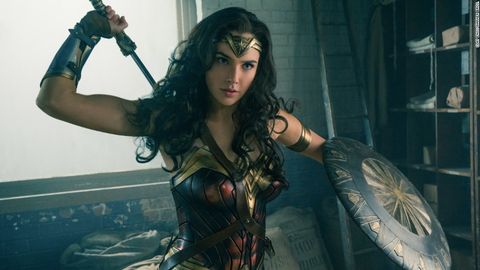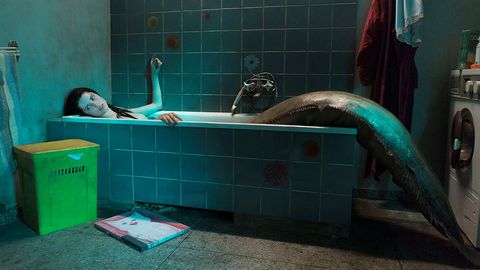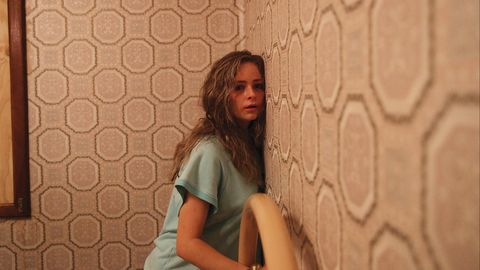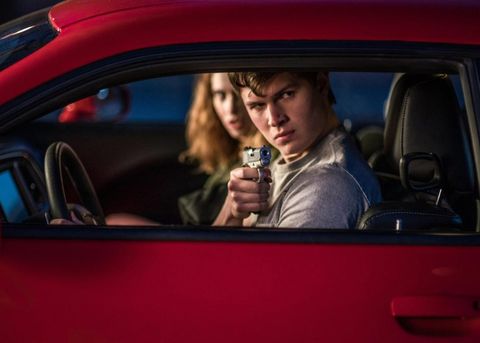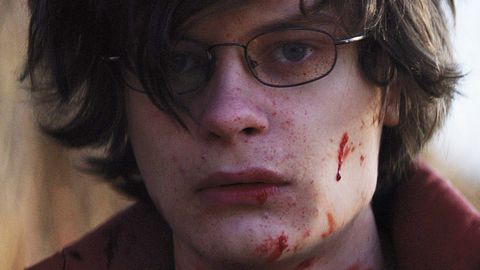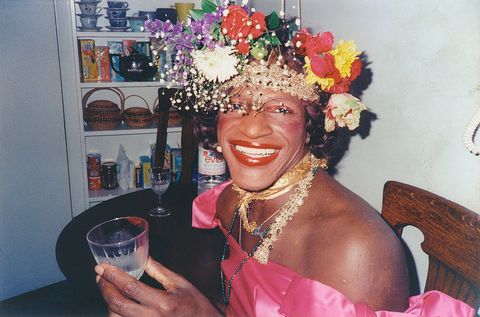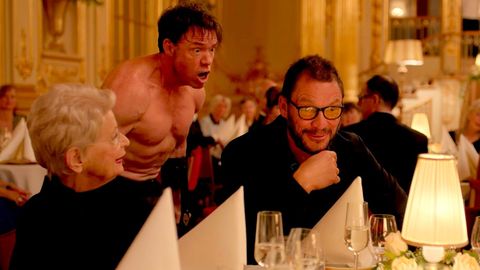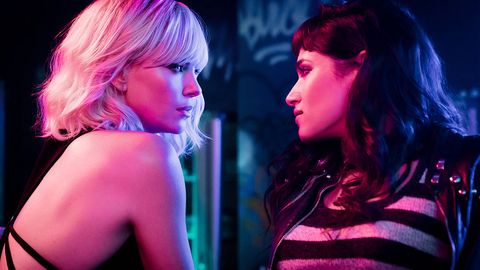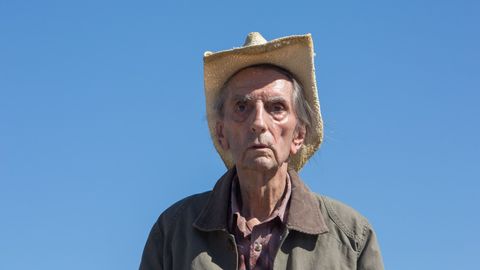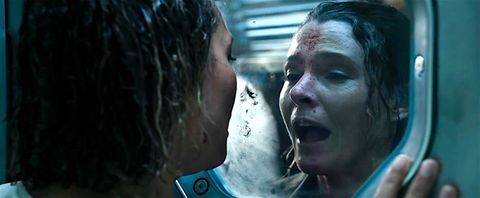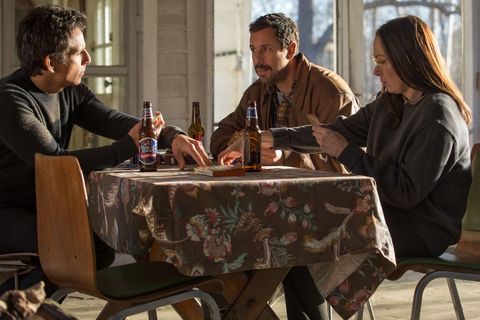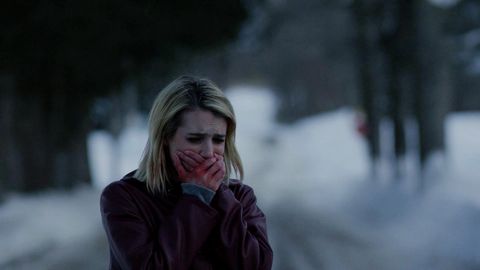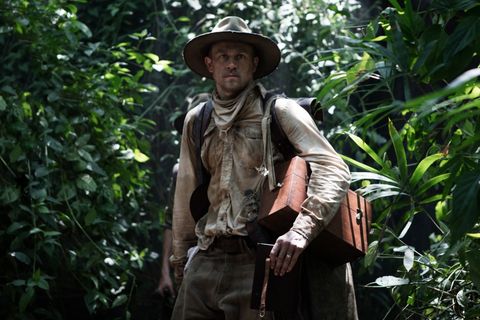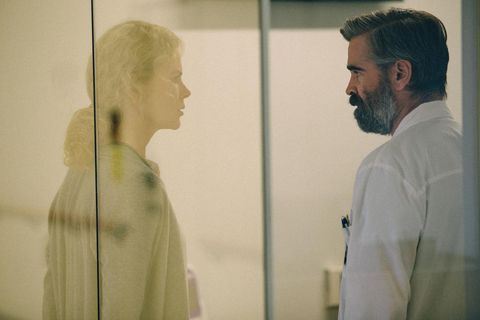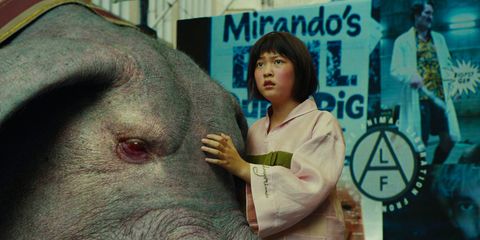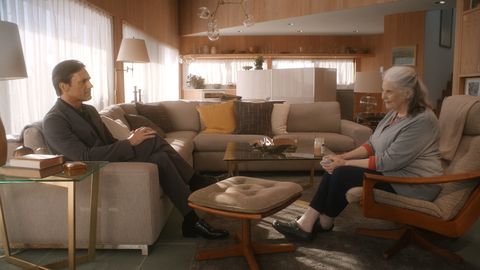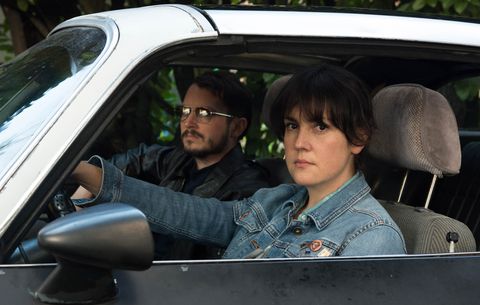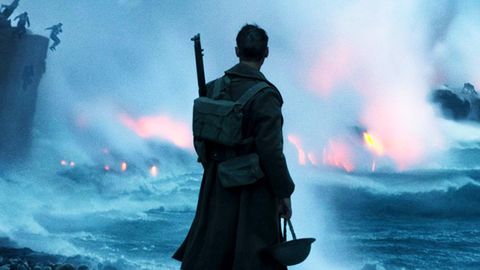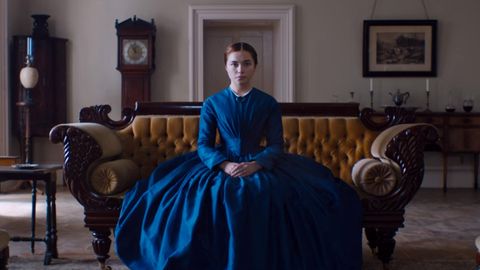Celebrating the finest movies offered up by both the multiplex and the art house.
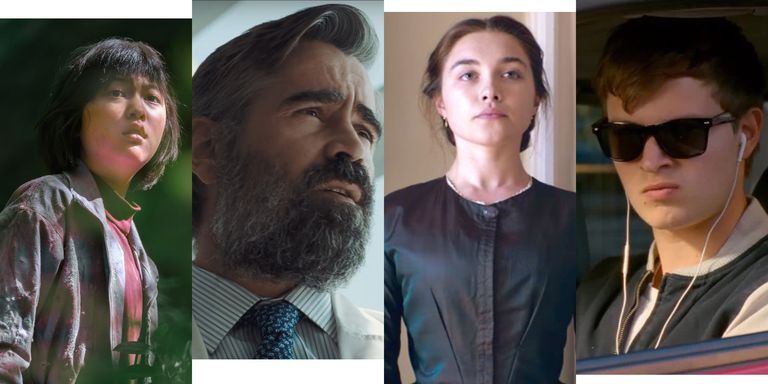
Fall is upon us, meaning it’s now definitely time to begin celebrating the finest movies that have so far made their way to the multiplex and the art house. After nine months, moviegoers have been gifted with a bounty of great blockbusters, indies, and documentaries, proving that filmmakers are continuing to find new ways —both big and small—to entertain, excite and enlighten.
No doubt there are numerous gems to come in next two months, given that by the holidays, we’ll have the latest works from acclaimed directors like Paul Thomas Anderson and Steven Spielberg (to name just two). For now, however, these are our current picks for the best films of 2017.
25. Wonder Woman
Like Logan, Wonder Woman breathes bracing new life into the increasingly moribund superhero blockbuster—although in the case of Patty Jenkins’s film, it does so less by reimagining its main character than by conceiving a grand, unique origin story for its heretofore-cinematically-neglected DC Comics icon. Building upon her scene-stealing cameo in Batman v Superman: Dawn of Justice, Gal Gadot embodies her Amazonian princess with innocence, resolve, and nobility throughout this solo outing, in which her Princess Diana departs her female-warrior homeland to join Chris Pine’s American spy in the fight against the Germans during WWI. Conflating history and fantasy with aplomb, Jenkins delivers the smash-’em-up CGI goods while reconfiguring standard-issue genre tropes in decidedly feminist fashion. At once courageous, determined, and guided by a heartening belief in the inherent goodness of mankind, this Wonder Woman is brains, beauty, and brawn, cast in a classical mold and yet tailor-made for the modern age. Rent/buy on Amazon and iTunes.
24. The Lure
La La Land‘s award-season triumphs may have heralded the return of the Hollywood musical, but in terms of ingenuity, flair and sheer eye-popping weirdness, it can’t hold a candle to The Lure. Polish director Agnieszka Smoczynska’s wackadoo import is a familiar drama about a young couple torn between individual dreams and professional desires, the twist being that these protagonists (Marta Mazurek and Michalina Olszanska) are mermaid cannibals sashaying through the seedy cabaret underbelly of 1980s Warsaw. Like the dreamy love child of Amèlie‘s Jean-Pierre Jeunet and The Fly‘s David Cronenberg—except with quite a bit more singing and dancing from its fantastical femme fatales—Smoczynska’s knockout debut charts its aquatic fairy tale creatures as they make a name for themselves as a pop duo known as “The Lure,” along the way falling in love and chomping on unsuspecting (male and female) victims. A bisexual Little Mermaid-by-way-of-vampire horrorshow scored to original New Wave-y tunes, it really is like nothing you’ve ever seen before. Rent/buy on Amazon and iTunes.
23. Hounds of Love
Putting a rugged twist on the serial-killer subgenre, Australian director Ben Young’s stellar debut concerns a young girl in 1987 Perth named Vicki (Ashleigh Cumming) who, after another row with her mother about her parents’ separation. is lured back to the home of a couple (Emma Booth and Stephen Curry) that, it turns out, has deviant plans for her. From an opening POV pan across a schoolyard populated by nubile teenage girls to the many shots in which Young’s camera pulls back from closed façades, Hounds of Love conveys a chilling sense of unspeakable horrors being perpetrated just out of everyday view—thus lending the proceedings a faux-based-on-real-events grittiness and immediacy. As it slowly elucidates the parent-child issues plaguing both its captors and their captive, the film develops into a chilling portrait of male domination and female liberation, all while providing, at every turn, an almost unbearable amount of methodical, nail-biting suspense. Rent/buy on Amazon and iTunes.
22. Icaros: A Vision
A journey into the deep, dark regions of the Amazonian wild, Leonor Caraballo and Matteo Norzi’s Icaros: A Vision follows an American beset by a cancer to the Peruvian jungle in search of ayahuasca—a psychedelic plant that, along with medicinal chants known as “icaros,” is used by locals to remedy mind, body, and spirit. In the care of Shipibo shamans, she and other patients venture freely between lucid and hallucinatory states, and so too does the film, which proceeds in an oblique, waking-dream fashion. Shot on location at a community retreat (and, briefly, at a hotel that was featured in Werner Herzog’s Fitzcarraldo), this unique effort is an alternately optimistic and despairing look at the ongoing clash of global cultures. And it’s one bolstered by its constant synthesis of disparate forces—man and nature, the modern and the ancient, the West and the East, the physical and the ethereal, and, ultimately, the real and unreal.
21. Baby Driver
Driving to the beat of his own iPod playlist, Baby (Ansel Elgort) is the charismatically cool frontman of Edgar Wright’s Baby Driver, a rocking caper about a gifted getaway driver who discovers that it’s difficult to extricate one’s self from a life of crime. More propulsive and streamlined than his “Three Flavours Cornetto” trilogy (Shaun of the Dead, Hot Fuzz, The World’s End), the film is a stylistically daring showstopper, its every inventive camera movement and edit in perfect harmony with the many great, eclectic soundtrack tunes blasting in Baby’s earbuds. Grooving alongside its hero as he tries to break free from his kingpin boss (Kevin Spacey), Wright’s high-octane original soon has Baby in league with a collection of menacing thieves, most notably an amoral Jamie Foxx and a psychopathic Jon Hamm, while simultaneously wooing a diner waitress (Lily James) who dreams of escaping her dreary day-to-day and hitting the open road. Reconfirming Wright’s preeminent genre mash-up skills, it delivers an electrifying action-romance-musical high. Rent/buy on Amazon and iTunes.
20. Super Dark Times
Faithfully channeling the spirit of its influences (Stephen King, Steven Spielberg, River’s Edge, Donnie Darko) rather than indulging in nostalgic shout-outs, Kevin Phillips’s Super Dark Times digs deeply into adolescent male dynamics, only to unearth horrifying truths about teen boys’ capacity for chaos. Bolstered by a uniformly excellent young cast, Phillips’ feature concerns an accidental tragedy that befalls four friends (Owen Campbell, Charlie Tahan, Max Talisman, and Sawyer Barth), and the subsequent cover-up that strains not only their relationships but the former duo’s romantic bond with a classmate (Elizabeth Cappucino). An opening sequence involving a deer breaking into a school sets an appropriate doom-laden mood, which Phillips expertly amplifies while simultaneously capturing a very real, complex sense of budding masculine desire, confusion, and rage. It’s one of the year’s standout debuts, and though it’s set in the mid-1990s, its snapshot of impotence and fury resonates as both universal—and terribly timely. Rent/buy on Amazon and iTunes.
19. The Death and Life of Marsha P. Johnson
For his follow-up to 2012’s How to Survive a Plague, documentarian David France concentrates his attention on Marsha P. Johnson, an icon of the New York City trans community whose life was cut short—under mysterious circumstances—in 1992, when her body was found in the Hudson River. Chronicling the efforts of activist Victoria Cruz to re-investigate Johnson’s cold case, the director both celebrates Johnson’s life as a loud-and-proud trailblazer, and reveals the persecution that she and those like her faced—and continue to face, as evidenced by a modern trial that eventually factors into the film—for simply being themselves. In the figure of Johnson’s one-time partner Sylvia Rivera, who eventually found herself living on the street right near the spot where Johnson perished, The Death and Life of Marsha P. Johnson details the difficult plight faced by so many trans individuals, as well as locates a measure of hope for a future that’s less grim than the (not-so-distant) past. Available to stream on Netflix.
18. John Wick: Chapter 2
Rarely has a film seemed less in need of a sequel than 2014’s John Wick, a self-contained bit of action-cinema perfection. Nonetheless, John Wick: Chapter 2manages to thrill through a constant barrage of masterful gun-fu carnage, with bullets flying at a jaw-dropping rate courtesy of Keanu Reeves’ nattily dressed assassin. Director David Leitch’s follow-up is a symphonic orgy of frenzied firearm warfare, with violence here depicted as a culinary art form performed by stylish Zen badasses with philosophical souls. It’s akin to a hybrid of Jean-Pierre Melville’s noir cool and Marvel’s superhero fantasy, all underworld rules and regulations and unbelievable feats of fearsome brutality, with Reeves exuding male-model chicness and powder-keg explosiveness as the epicenter of this murderous maelstrom. While the film’s reason for once again forcing Wick out of retirement isn’t nearly as gripping as its predecessor’s vengeance-for-his-dead-dog motivation, the specifics of Chapter 2 wind up mattering little in the face of so much exhilarating death and destruction. Rent/buy on Amazon and iTunes.
17. The Square
Taking aim at a wider variety of targets than he did in his prior Force Majeure, director Ruben Östlund goes after art-world pretensions, media sensationalism, and our inability to uphold basic social contracts with The Square, a sprawling work of satiric confrontation. Taking its name from a gallery installation designed to provide a safe space for citizens, Östlund’s saga concerns museum director Christian (Claes Bang), who finds himself at the center of a personal maelstrom thanks to, among other things, a marketing campaign that goes horribly awry, a tense relationship with a journalist (Elisabeth Moss), and a growing crisis caused by his attempts to reclaim his stolen cell phone. Be it an artist’s (Dominic West) encounter with a Tourette Syndrome-afflicted patron, or a gala dinner interrupted by the arrival of a man (Terry Notary) posing as an ape—and then accosting guests in an increasingly hostile manner—the film spares few in its takedown of our animalistic instincts, and the way in which they interfere with (if not outright decimate) our more considerate impulses. Pre-order on Amazon.
16. Good Time
Arguably the finest male performance of the year comes courtesy of Robert Pattinson in Good Time, the latest grungy New York City street drama from rising superstar directors Ben and Josh Safdie (Heaven Knows What). In this breakneck nocturnal thriller, Pattinson is Connie, a low-level hood who finds himself on a desperate search for bailout cash after a bank robbery goes awry and his accomplice—his mentally challenged brother Nick (Ben Safdie)—is arrested and given a one-way ticket to Rikers Island. With a scruffy goatee, disheveled hair that he eventually bleaches a garish blonde, and amoral desperation in his eyes, Pattinson proves a mesmerizing man on the run, his motivations cloudy, his behavior unethical, and his every decision more foolhardy than the last. The Safdies’ up-close-and-personal shooting style sticks closely to their protagonist as he falls deeper and deeper into a hole of his own making, ultimately generating an intensity of sound, movement and mania that makes watching the film feel akin to being on a rollercoaster with faulty brakes. Pre-order on Amazon.
15. Ex Libris: The New York Public Library
Frederick Wiseman is cinema’s great non-fiction chronicler of American institutions, and for his 42nd feature, the 87-year-old director turns his attention to the New York City Public Library. As per Wiseman’s favored style, Ex Libris takes its time (197 minutes, to be exact) providing a comprehensive view of the venerable library—the fourth-largest in the world—via snapshots of myriad aspects of its day-to-day operations, from business meetings, vocational seminars and fundraising events, to visiting student workshops, tutorials for the blind, and assorted activities held at its remote branches. In training his gaze on so many different (intellectual, artistic, curatorial, educational, recreational, historical, and preservation) facets of the organization, as well as its attempts to move forward into an increasingly digital age, Wiseman captures its status as a nexus of knowledge and learning. In its quiet images of people attending the library, as well as graceful transitional sequences comprised of city street images, the film also presents the library as a center of NYC life—the tissue tethering together its various neighborhoods, cultures, traditions and people.
14. Atomic Blonde
With Blondie style and John Wick ferocity, Charlize Theron strikes a peerless ass-kicking pose in Atomic Blonde, director David Leitch’s electric Cold War extravaganza. Straddling a fine line between exploitation and empowerment, this adaptation of a 2012 graphic novel (The Coldest City) is a narratively tangled affair—told in unreliable flashback by its protagonist—about Theron’s MI6 spy navigating a sea of Berlin duplicity on a mission to learn why her espionage cohort-lover was murdered. The hunt for a coveted list of covert agents follows, with KGB baddies and James McAvoy’s dubious colleague complicating matters to a head-spinning degree. Such storytelling confusion is part and parcel of a film that, at every turn, thrillingly plays it both ways, replete with Theron’s heroine casting doubt on her allegiance to her interrogative superiors (Toby Jones, John Goodman) while also seducing Sofia Boutella’s Frenchwoman. More importantly, from an early apartment skirmish to a late hallway throwdown—one-against-many conflicts defined by stellar choreography and a piercing sense of pain and exhaustion—Theron indisputably seizes cinema’s action-queen crown. Rent/buy on Amazon and iTunes.
13. Lucky
The late Harry Dean Stanton could have received no better big-screen swan song than Lucky, a Western ode to the ravages of time, the mysteries of mortality, and the inimitable laid-back cool of its leading man. Smoking like a chimney and dispensing wisdom with off-hand profundity, Stanton’s Lucky is an aged loner living in the middle of the desert, his life spent puffing on cancer sticks, exercising, watching game shows, and hanging out at the local bar with, among other regulars, David Lynch’s panama hat-wearing eccentric, who’s been abandoned by his beloved tortoise. As easygoing as a country ballad (and its laconic star), director John Carroll Lynch’s film is short on dramatic incident but long on mood and heavy with philosophical substance, as Stanton’s Lucky grapples with issues of realism, happiness and what awaits us after we shuffle off our mortal coil. A fitting send-off for one of cinema’s great character actors, it’s a quiet, powerful tale of life, death, friendship, love, togetherness, and the unseen forces that govern our behavior—and bind us together. Pre-order on Amazon.
12. Alien: Covenant
Blending the body horror of his 1979 Alien, the gung-ho combat of James Cameron’s 1986 sequel Aliens, and the philosophical grandiosity of his 2012 prequel Prometheus—not to mention the man-and-machine musings of his 1982 Blade Runner—Ridley Scott delivers a biblically scaled interstellar nightmare with Alien: Covenant. Scott’s latest spends its first hour setting up a familiar battle between human colonists and angry xenomorphs, after the former decide to investigate a mysterious distress signal from a nearby planet. Yet after expertly going through the tried-and-true monster-movie motions, the director then shifts gears by turning his prime attention to Michael Fassbender’s android David—who, it turns out, is an inhabitant of this ancient world. Face-huggers, back-bursters, mecha-doppelgängers, and the most narcissistic-homoerotic sequence in sci-fi history soon follow, with the action immaculately designed for suspense, scares, and sly sinister humor. At once a rousing blockbuster spectacle and an inventive expansion of the franchise’s core themes, it’s the rare prequel to truly justify its existence. Rent/buy on Amazon and iTunes.
11. The Meyerowitz Stories (New and Selected)
As a recently separated father with no career but plenty of daddy issues, Adam Sandler delivers the performance of his career in Noah Baumbach’s The Meyerowitz Stories (New and Selected), an incisive and often hilarious NYC family drama. Like in Punch-Drunk Love, Sandler does an earnest, endearingly damaged variation on his trademark goofy-exterior-masking-interior-rage persona as Danny, who along with half-brother Matthew (Ben Stiller) and half-sister Jean (Elizabeth Marvel), has been thoroughly shaped—mostly for the worse—by his faded-artist father (Dustin Hoffman). The corrosive influence that parents have on their children, and the discord it breeds between siblings, is at the heart of Baumbach’s film, which would resound as a tragedy if not for the consistent humor derived from the Meyerowitzs’ distinctly NYC-Jewish brand of fuming, fussing and bickering. Intricately scripted and grandly performed by its stars (including an amusingly impossible Hoffman), it’s a superior companion piece to the director’s The Squid and the Whale, as compassionate as it is critical. Available to stream on Netflix.
10. City of Ghosts
Since 2014, ISIS has claimed the Syrian city of Raqqa as the capital of its so-called Caliphate—and, at the same time, been opposed by a band of local “citizen journalists” whose mission is to expose the Islamic State’s horrific crimes. That group, known as “Raqqa Is Being Silently Slaughtered” (RBSS), is the focus of director Matthew Heineman’s sterling new documentary, which embeds itself with three RBSS members as they struggle to continue their work from Germany and Turkey, where they’ve been forced to flee thanks to death threats from ISIS. Posting ghastly video and still photos of ISIS atrocities in order to elicit global outrage and opposition, RBSS risks literal life and limb in its battle with terrorism, and to a significant extent, so too does Heineman via his doc, which embraces its subject’s cause in order to effect change. Eschewing many non-fiction conventions (talking head interviews, textual summaries) for a chronologically fractured, up-close-and-personal depiction of courage under fire, it’s a film that inspires as much as it horrifies and infuriates. Rent/buy on Amazon.
9. The Blackcoat’s Daughter
Director Osgood Perkins is the son of Norman Bates himself (actor Anthony Perkins), but he proves to be a horror maestro in his own right with The Blackcoat’s Daughter, a beguiling descent into dark, demonic places that’s all the more chilling for refusing to chart a simple straight-and-narrow course. In upstate New York, Kat (Mad Men‘s Kiernan Shipka) is left by her parents to spend winter break at her boarding school alongside more popular Rose (Lucy Boynton); meanwhile, Joan (Emma Roberts) endeavors to hitchhike her way to the school, eventually nabbing a ride with a contentious couple (James Remark and Lauren Holly). What these three girls have to do with each other is a mystery to be unraveled. It’s ultimately far less important than the overarching air of loss—of parents, of virginity, of adolescence—and grief that consumes them. It eventually becomes clear that all is not right with this institute and its (Satan-admiring?) staff members. Yet what lingers is the pervasive fear of abandonment, all of it encapsulated by Roberts’ final, unforgettable primal scream. Rent/buy on Amazon and iTunes.
8. The Lost City of Z
Acclaimed American filmmaker James Gray (Two Lovers, The Immigrant) ventures for the first time outside New York City—and into the dark heart of the Amazon—with The Lost City of Z, an adaptation of David Grann’s 2009 non-fiction book of the same name. Such a geographic relocation, however, does little to alter Gray’s fundamental artistic course, as his latest—about early 20th century British explorer Percy Fawcett’s (Charlie Hunnam) repeated efforts to locate a lost South American civilization that he believed to be more advanced than any previously discovered—boasts his usual classical aesthetics and empathetic drama. Energized by a hint of Apocalypse Now‘s into-the-wild madness, this entrancing period piece is at once a grand adventure, a social critique about class and intolerance, and a nuanced character study about an individual caught between his love for—and desire to escape—his environment. Led by Hunnam, Robert Pattinson, and Sienna Miller, it’s also one of the finest-acted dramas of the year. Rent/buy on Amazon and iTunes.
7. The Killing of a Sacred Deer
Colin Farrell and his The Lobster director Yorgos Lanthimos reteam for another bonkers social critique with The Killing of a Sacred Deer, a pitch-black comedy of misery whose laughs spring forth from the mounting insanity of its story. That plot concerns Farrell’s surgeon Steven, whose happy domesticity with wife Anna (Nicole Kidman) and their two kids is upended by his strange friendship with teenager Martin (Barry Keoghan), with whom he meets in secret for reasons that aren’t immediately made clear. The revelations that finally materialize are of an unexpected and downright inexplicable sort, exposing the proceedings as a self-conscious biblical/Grimm’s fairy tale allegory about crime and punishment—as well as the cost of refusing to take responsibility for one’s actions. Led by ferociously funny robotic turns by Farrell, Kidman, and Keoghan, it’s also a scathing send-up of civil niceties, with each flat, blunt statement about everyday things coming across as the height of absurd phoniness. Pre-order on Amazon.
6. I Called Him Morgan
Lee Morgan was one of the mid-century jazz scene’s brightest lights, until his life was cut tragically short when his wife Helen fatally gunned him down in a New York City nightclub on the snowy night of February 18, 1972. Using copious archival footage, newly recorded interviews with friends and collaborators, and, most illuminating of all, a tape-recorded 1996 interview with Helen made one month before her death, Kasper Collin’s transfixing documentary I Called Him Morgan recounts this sad real-life saga as two separate stories—Lee’s and Helen’s—that eventually dovetailed, intertwined, and then combusted in horrific fashion. Abandonment, drug abuse, and betrayal all factor into this sorrowful equation, as Collin assuredly conveys the messy stew of passion, need, ego, loneliness, and fury that eventually begat such a calamity. In doing so, it recognizes the jazzy spirit of Lee and Helen’s doomed romance—and, also, the riffing-our-way-forward nature of life itself. Rent/buy on Amazon and iTunes.
5. Okja
Bong Joon Ho’s Okja is many things at once: a rollicking kid’s fable about the bond between a young South Korean girl (Byun Hee-bong) and her genetically enhanced super-pig (named Okja); a satiric critique of the corporate food industry; a wacko comedy about transcending cultural boundaries; and a fantastical adventure full of kidnappings and chases, buoyed by over-the-top performances from Tilda Swinton and Jake Gyllenhaal, and culminating with a Times Square spectacular and a Holocaust-esque trip to the slaughterhouse. Most of all, however, it’s the year’s most exhilaratingly idiosyncratic work, indebted to the spirit of both Steven Spielberg and Hayao Miyazaki, and energized by the distinctive signature of its director. Vacillating between mirthful, madcap and morose on a dime, Bong’s latest—about Byun’s heroine trying to reunite with Okja after the animal is reclaimed by the conglomerate that created her—is both all over the place and yet assuredly coherent. Whether viewed on a big screen or via Netflix (its exclusive distributor), it’s a wondrous whatsit unlike anything you’ve quite seen before. Available to stream on Netflix.
4. Marjorie Prime
The year’s most moving film, Michael Almereyda’s adaptation of Jordan Harrison’s Pulitzer Prize-nominated play takes a Twilight Zone-ish concept into surprisingly profound, poignant territory. At a seaside home, Marjorie (Lois Smith) spends her final days conversing with a holographic projection that resembles her late husband Walter (Jon Hamm), all as her daughter Tess (Geena Davis) and son-in-law Jon (Tim Robbins) cope with her failing health and their own personal and marital issues. In Marjorie and Walter’s conversations—the latter’s personality shaped by information given to it by its human owners/programmers—as well as later chats between other people and holograms, Marjorie Prime plumbs not only complex familial dynamics but also the thorny intricacies of memory: how we prioritize, shape, erase, and warp them to fit more comforting conceptions of ourselves and our lives. It’s a superb, subtle portrait of conscious and unconscious (self-) deception, perpetrated so we might grapple with the pain, disappointment and tragedy of existence—and how, as a result, we create a dialogue that gives birth to a living, breathing new future. Buy/rent on Amazon.
3. I Don’t Feel at Home in This World Anymore
Suspenseful and hilarious, despondent and optimistic, I Don’t Feel at Home in This World Anymore is a masterful genre film, one that immerses itself in the small, painful indignities of everyday life, and then casts the battle against those wrongs as a serio-comic odyssey of sleuthing, heavy metal, and nunchakus. After her house is burglarized, nurse Ruth (Melanie Lynsky) partners with her rat-tailed martial-arts-loving neighbor Tony (Elijah Wood) to recover her stolen belongings. Their ensuing black-comedy adventure is grimy, bloody, and ridiculous, as director Macon Blair (best known for his performances in Jeremy Saulnier’s Blue Ruin and Green Room) pitches his material as an absurdist neo-noir saga about combatting existential despair. Courtesy of a great Lynsky performance that’s equal parts miserable and furious, I Don’t Feel at Home in This World Anymore (which won the Grand Jury Prize at Sundance before premiering exclusively on Netflix) finds humor and horror in the notion that “everyone is an asshole”—and then locates hope in the closing-note idea that, rather than worrying about them, life is best spent in the company of those precious few who aren’t. Available to stream on Netflix.
2. Dunkirk
Christopher Nolan dispenses with the exposition in favor of immersive aesthetics with Dunkirk, a dramatic account of the WWII evacuation of Dunkirk, France’s beaches in 1941. Fractured between three interwoven time frames and perspectives (land, sea and air), and shot almost entirely in 70mm IMAX—which stands as the ideal format in which to see this overwhelmingly experiential work—Nolan’s wartime tale cares little for character detail or contextual background. Instead, it thrusts viewers into the chaos engulfing a variety of infantrymen (including Fionn Whitehead and Harry Styles), commanders (primarily, Kenneth Branagh), fighter pilots (led by Tom Hardy), and civilian boatman (notably, Mark Rylance), all of whose sacrifice, selfishness, cowardice, and heroism is thrown into sharp relief by Nolan’s grand set pieces. Through its towering scale, superb staging, and inventive structure, Dunkirk melds the micro and the macro with a formal daring that’s breathtaking, along the way underscoring the unrivaled power of experiencing a truly epic film on a big screen. Pre-order on Amazon and iTunes.
1. Lady Macbeth
Hell hath no fury like a woman oppressed, as is shockingly born out by William Oldroyd’s phenomenal feature directing debut—an adaptation not of the Bard but, rather, of Nikolai Leskov’s 1865 novel Lady Macbeth of the Mtsensk District. In a breakout performance of coiled intensity and ruthless cunning, Florence Pugh is Katherine, a young woman sold into marriage to an older landowner (Paul Hilton), whose nastiness is only surpassed by that of his domineering father (Christopher Fairbank). That union is rife with problems from the start, though despite the film’s Shakespeare-referencing title, the path it wends is an original and horrifying one. Suggesting a period piece version of a film noir saga as envisioned by Stanley Kubrick, this twisted feminist drama is rooted in contentious racial- and gender-warfare issues, employing a meticulous formalism to recount its cutthroat story about Katherine’s at-any-cost attempts to attain liberation. Like its protagonist, it’s a film that’s placid and refined on the outside, ferocious and pitiless on the inside. Rent/buy on Amazon.





